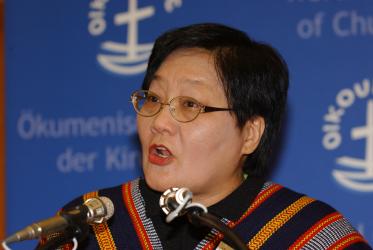Displaying 1 - 14 of 14
Unity is key when health crisis poses new challenges in Asia
28 February 2022
Voices from HIV workshop reflect deep impact
07 April 2016
Church in Philippines launches book on HIV and AIDS
19 February 2014
Senturias named to human rights board in the Philippines
18 February 2014
A church that listens fosters healthy communities
15 March 2013




